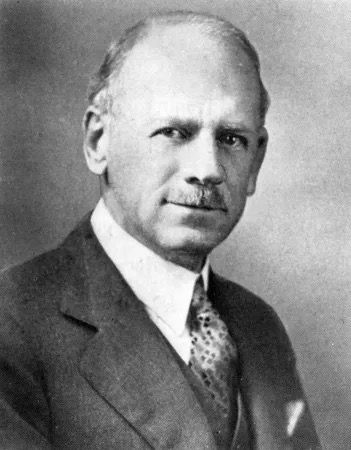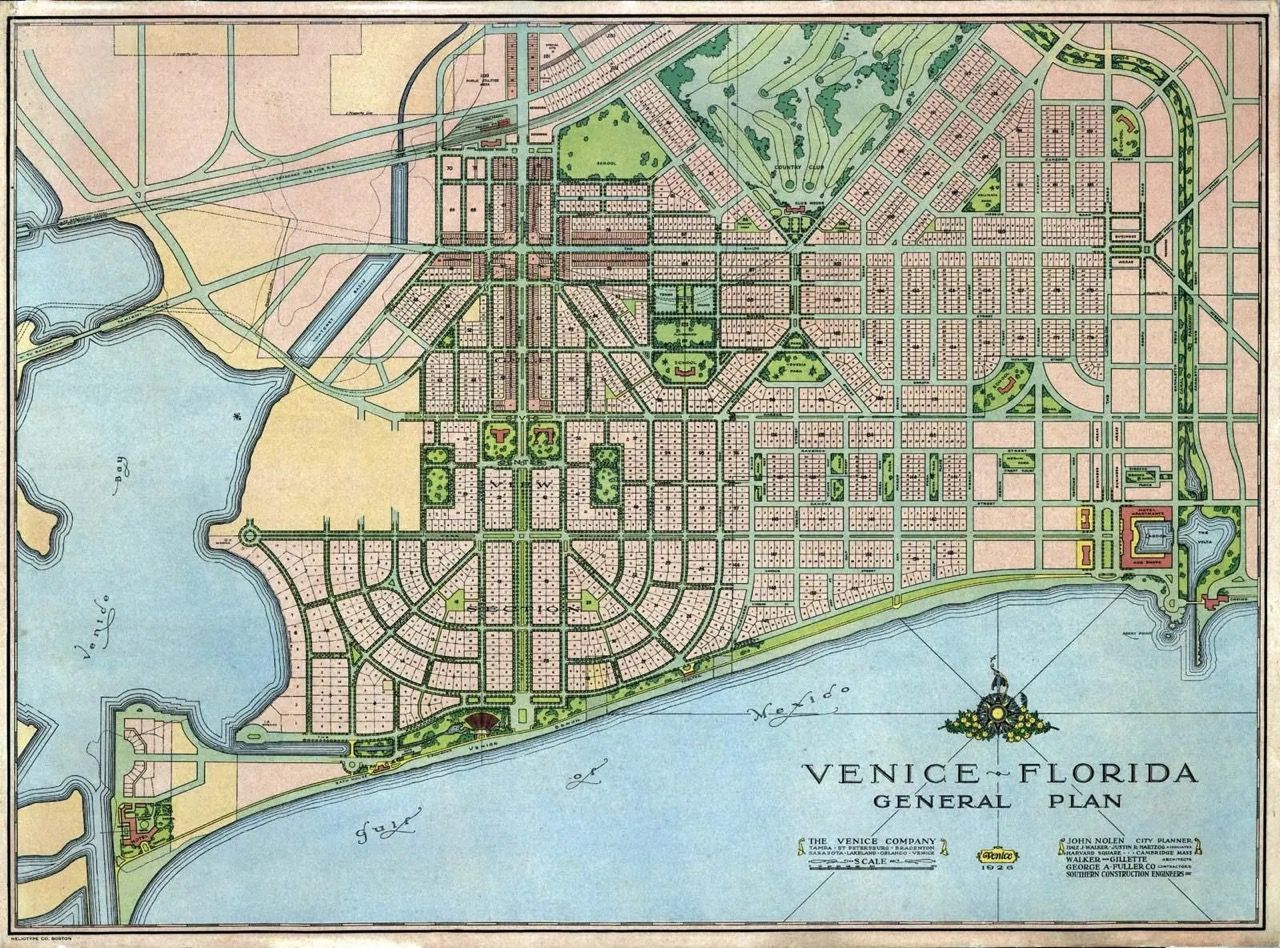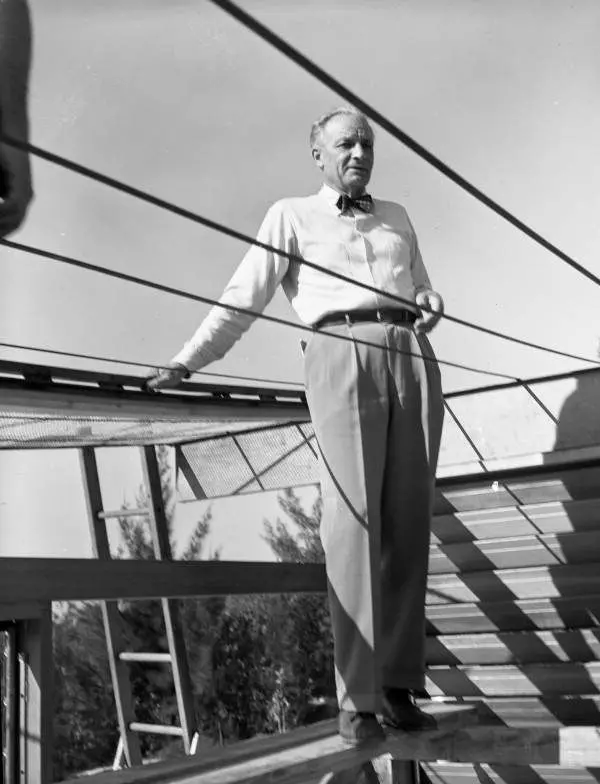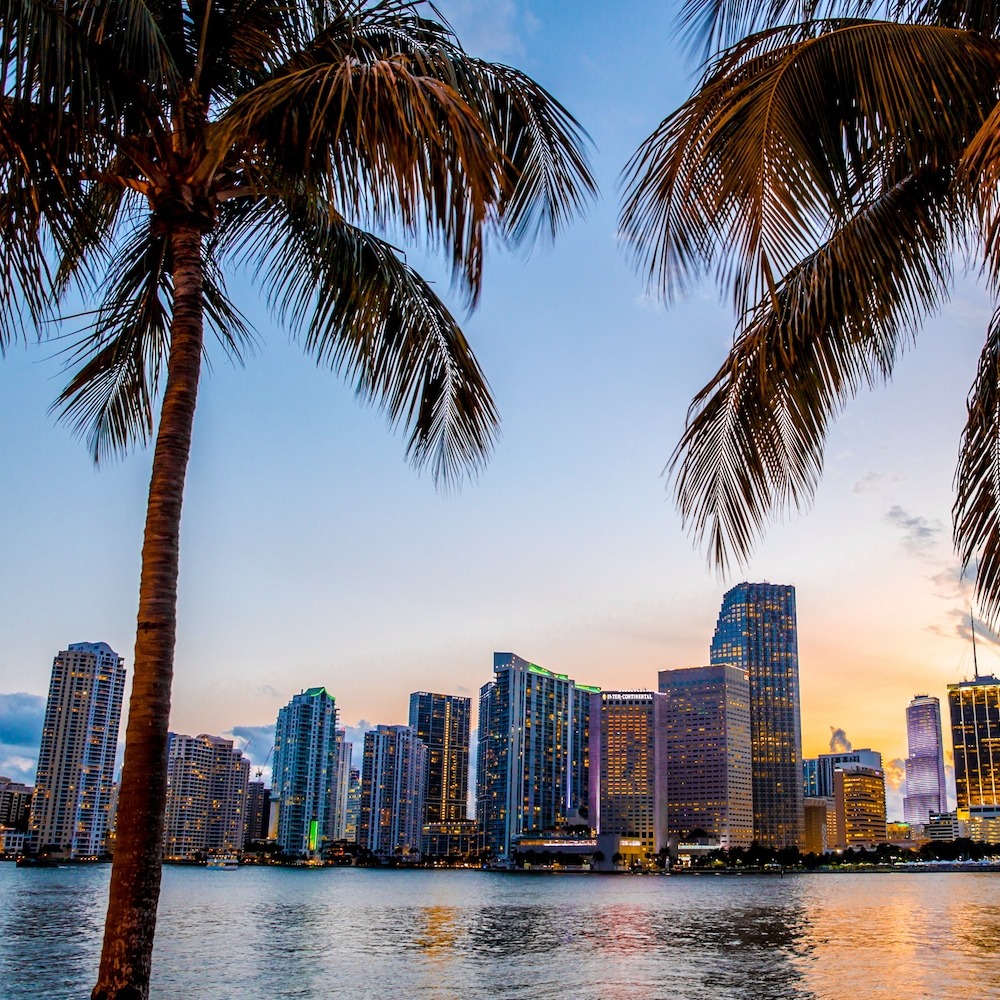John Nolen: The Visionary Who Shaped Venice, Florida


When you walk the tree-lined boulevards of Venice, Florida, or pause in one of its pocket parks just steps from the Intracoastal Waterway, you’re experiencing the vision of John Nolen—a pioneering city planner whose work nearly a century ago still defines the character of this Gulf Coast community.
From Humble Beginnings to Harvard
Born in Philadelphia in 1869, Nolen’s life was far from privileged. Orphaned at a young age, he worked as a clerk and salesman before pursuing higher education later in life. That unconventional path gave him a practical understanding of everyday challenges, shaping his conviction that cities should be designed for all people—not just the wealthy few.
He first studied political science and economics at the University of Pennsylvania, graduating in 1893 with a focus on social reform. His interest in how communities function pushed him toward planning as a tool for improving lives.
At Harvard Graduate School of Design, Nolen studied landscape architecture under Frederick Law Olmsted, Jr., whose father famously designed Central Park. From Olmsted, Nolen absorbed the philosophy that green spaces are vital to civic health. At 36, he earned his degree and quickly began shaping the future of American cities.
Nolen didn’t stop there. He traveled widely through Europe, studying how cities in England, Germany, and Italy balanced housing, culture, and public life. These trips left a deep impression, and the Mediterranean flair he admired abroad would later find its way into his Venice plan.
A New City on the Gulf
In the 1920s, the Brotherhood of Locomotive Engineers (BLE) sought to create a model city on Florida’s west coast. They turned to John Nolen, already one of the country’s most respected planners, to design it.
Nolen’s plan for Venice, completed in 1926, was one of Florida’s first comprehensively master-planned communities. His design emphasized: Wide boulevards and curving neighborhood lanes that encouraged beauty and community. Parks, civic spaces, and greenways, ensuring residents stayed connected to nature. A civic core with schools, churches, and gathering places at the heart of the community. Easy access to the waterfront, blending city life with coastal living.
The architectural vision was later carried out by Dwight James Baum, whose Mediterranean Revival buildings gave Venice its distinctive charm. Together, their work created a city unlike any other in Florida—a place with intention, elegance, and a strong sense of community.
Nolen’s Broader Influence
While Venice may be one of his best-preserved works, John Nolen’s influence extended across the United States. He crafted plans for Madison, Wisconsin; Roanoke, Virginia; Kingsport, Tennessee; Cambridge, Massachusetts; and San Diego, California. He was also one of the early champions of zoning laws, walkability, and thoughtful integration of green space—principles that still guide urban planning today.
Venice Today: Living His Legacy
Nearly a century later, Venice still reflects Nolen’s vision. Residents enjoy: A walkable downtown core, where shops, restaurants, and the Venice Theatre are just steps from neighborhoods. A balance of residential, civic, and recreational spaces, fostering community spirit. A rare sense of cohesion and charm, a result of being one of the few Florida cities that still aligns closely with its original master plan.
Living in Venice isn’t just about owning a home—it’s about embracing a lifestyle rooted in community, beauty, and connection to nature, the very principles John Nolen devoted his career to.
Venice remains one of the only Gulf Coast cities that is still recognizable from its original 1926 plan. That’s why it feels different—more charming, more connected, and more livable than many newer Florida communities.
Categories
Recent Posts

From Circus Town to Mid-Century Crown: The Twitchell Effect

Ruth Richmond- The Architect of Easy Living

Discover Miami: The Magic City

GLAMOUR – The new GG issue is here

From Citrus Grove to Coffee Grounds

Stage Your House to Sell During the Holiday Season

From Bones to Buildings: Dr. Fred Albee and the Making of Venice

Shredding the Slopes: What Makes the Perfect Mountain Home for Snowboarding Enthusiasts

Dreaming Among the Vines: Explore the World’s Most Exquisite Vineyard Estates

From Nordic Nights to Circus Lights
